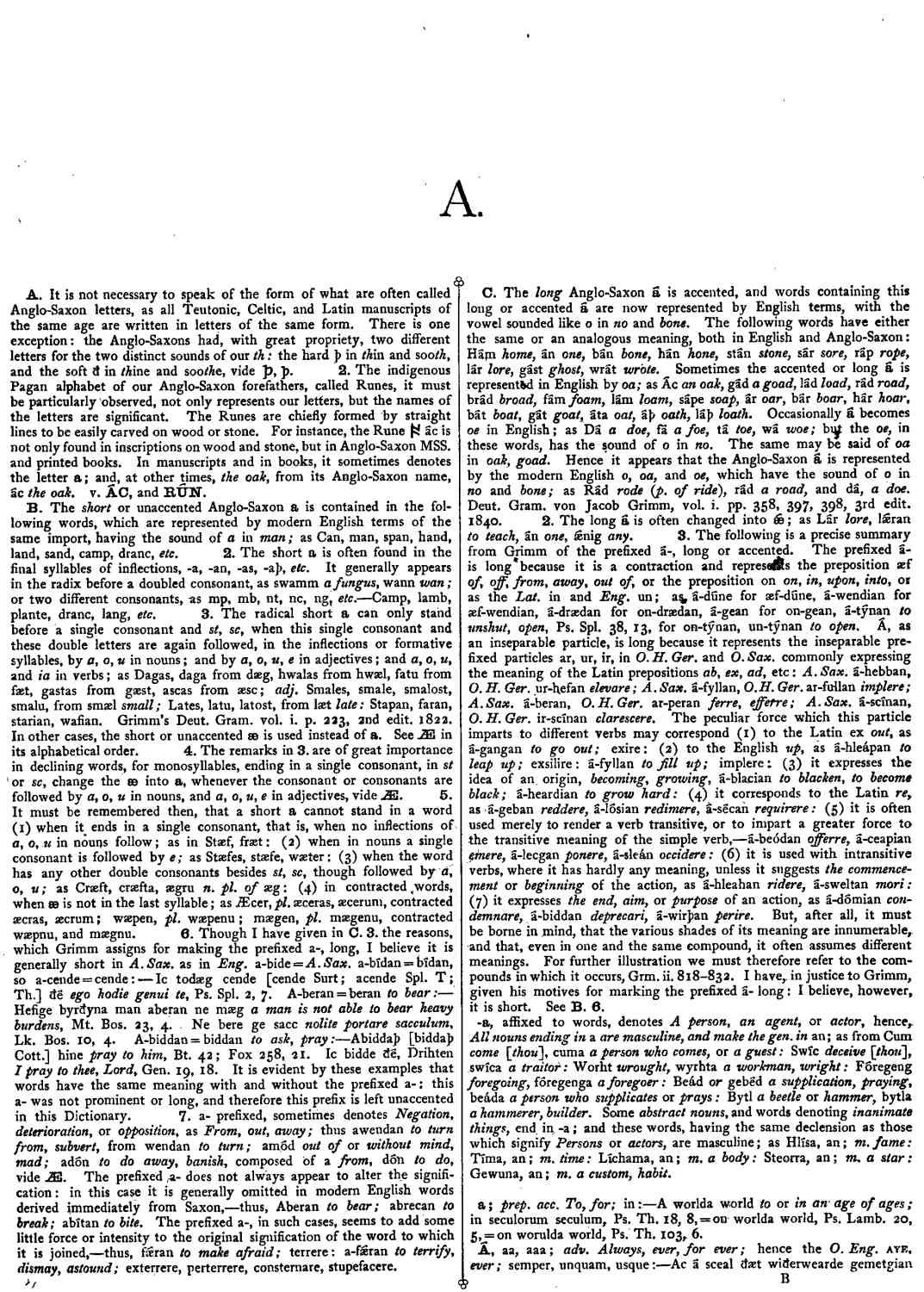A
- prefix
- Smales, smale, smalost, smalu, from smæl small; Lates, latu,
latost, from læt late: Stapan, faran, starian, wafian.
Grimm's Deut. Gram. vol. i. p. 223, 2nd edit. 1822. In other cases, the
short or unaccented æ is used instead of a. See
Æ in its alphabetical order.
-
Ic todæg cende [cende Surt; acende Spl. T; Th.] ðé
ego hodie genui te,
- Ps. Spl. 2, 7.
-
A-beran = beran to bear :-- Hefige byrðyna man aberan ne mæg
a man is not able to bear heavy burdens,
- Mt. Bos. 23, 4.
-
Ne here ge sacc
nolite portare sacculum,
- Lk. Bos. 10, 4.
-
A-biddan = biddan to ask, pray :-- Abiddaþ [biddaþ Cott.] hine
pray to him.
- Bt. 42 ; Fox 258, 21.
-
Ic bidde ðé, Drihten
I pray to thee, Lord,
- Gen. 19, 18.
- It is evident by these examples that words have the same meaning with and without the prefixed a-: this a- was not prominent or long, and therefore this prefix is left unaccented in this Dictionary.
- 397, 398, 3rd edit. 1840.
- Ps. Spl. 38, 13, for on-týnan, un-týnan to open. Á, as
an inseparable particle, is long because it represents the inseparable
prefixed particles ar, ur, ir, in O. H. Ger. and O.
Sax. commonly expressing the meaning of the Latin prepositions
ab, ex, ad, etc: A. Sax. á-hebban, O. H.
Ger. ur-hefan elevare; A. Sax. á-fyllan, O. H.
Ger. ar-fullan implere; A. Sax. a-beran, O. H.
Ger. ar-peran ferre, efferre; A. Sax. á-scínan, O.
H. Ger. ir-scínan clarescere. The peculiar force which
this particle imparts to different verbs may correspond
Bosworth, Joseph. “A.” In An Anglo-Saxon Dictionary Online, edited by Thomas Northcote Toller, Christ Sean, and Ondřej Tichy. Prague: Faculty of Arts, Charles University, 2014. https://bosworthtoller.com/1.
Checked: 0